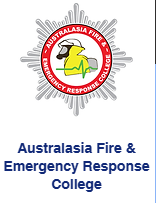The respond to aviation incident (specialist) course is run over 4 days. This unit of competency involves the skills and knowledge required to work under supervision as a member of a specialist aviation incident response team while responding to an aviation event. It applies to personnel who are mem

The respond to aviation incident (specialist) course is run over 4 days. This unit of competency involves the skills and knowledge required to work under supervision as a member of a specialist aviation incident response team while responding to an aviation event. It applies to personnel who are members of specialist aviation incident response teams.
The fire sector is those sections of government departments, statutory authorities or organisations that have responsibility under jurisdictional arrangements for the delivery of firefighting and fire management services.
Pre-Requisites
It is essential that the prerequisite units listed below are obtained prior to the issuance of this unit to individuals within the fire sector or the units contributing to the attainment of a fire qualification.
PUAFIR203 Respond to urban fire
RTO Entry Requirements
Students must satisfactorily complete a language, numeracy and literacy assessment prior to or on course commencement to assess capacity to meet the language, literacy and numeracy requirements of the course. Students will also need to have the physical capacity to undertake the practical components of this course.
Training
The course is facilitated by a highly experienced training team, and includes trainer presentations, small group work, independent self paced and lots of opportunity for practical hands on activities.
Assessment
A range of assessment methods are used to monitor student progress and assess competence. Knowledge checks and practical skill demonstrations are used across all units, some units also require written activities to be completed. Throughout the course trainers are available to assist and support students in their learning journey and in the completion of assessment requirements.
Employment Outcomes
Students who are successful in gaining this qualification can expect to be eligible for jobs in the emergency response sector within the mining and resources industry.
Recognition of Prior Learning
Australasia Fire & Emergency Response College is committed to recognising knowledge and skills acquired through work experience, education, training and life experiences. Call our Training Department on 07 5343 3058 for a personalised RPL kit.
Welcome to Australasia Fire & Emergency Response College, we are a Registered Training Organisation which is located at 9 Tandem Avenue, Warana, Queensland.
We offer a core set of training and assessment courses in fire and rescue, emergency services, and mining emergency response. We aim to provide our students with the knowledge and practical hands on experience to operate confidently and competently in a range of emergency situations.
We work closely with industry to ensure our courses are current and meet industry needs.
We target a wide range of students including those looking for a career change or expand their career opportunities; those already working in industry looking to update or improve their skills, as well as newbies looking to establish a career in fire, rescue and emergency response.
Our courses have access to highly experienced trainers and assessors in the following fields Firefighters, Paramedics and Doctors ensuring your training course is relevant and accurate to industry requirements.
Why choose Australasia Fire & Emergency Response College?
Personal and customised training to suit your needs
Access to realistic training scenarios
Professional, competent and highly experienced trainers
Affordable solution to expand your career opportunities
© 2025 coursetakers.com All Rights Reserved. Terms and Conditions of use | Privacy Policy